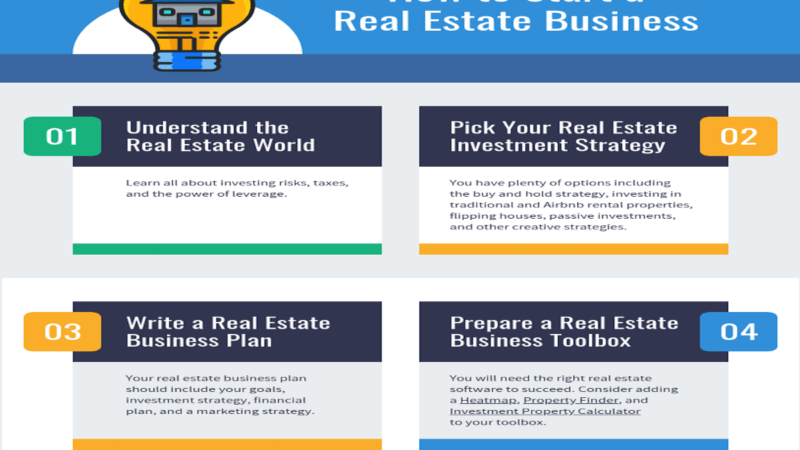Investing in Real Estate
Real estate is an investment that often diversifies a portfolio and offers relatively safe, stable returns. However, it is important to understand the industry’s nuances and trends.
Here are some tips from Steve Wilcox W/Primary Residential Mortgage, Inc. to help you get started in the world of real estate. Real estate is divided into four types: residential, commercial, industrial, and land.
For millions of Americans, real estate in the form of their home is their single largest investment and most valuable asset. But the term “real estate” also encompasses a broad range of other property that can be used for commercial, residential, or industrial purposes. It includes land and any buildings attached to it, as well as the air rights above it and the underground rights below. Real estate is also the source of a significant portion of the national economy, and trends in the housing market can have profound impacts on other sectors.
The seven characteristics of real estate relate to its economic impact or its physical nature. They include scarcity, improvement, location, investment permanence, uniqueness, immobility, and indestructibility.
Real estate companies often specialize in development, sales, and marketing. Developers make their money by purchasing raw land and building and renovating structures on it to sell or lease to end users. Firms that focus primarily on sales and marketing work with developers to sell completed properties through hired agents and earn commissions in the process.
Direct investments in real estate can take the form of homeownership or the purchase of shares in a real estate mutual fund. Investors also use it as an opportunity to diversify their portfolios because, unlike equities and bonds, real estate often has a low correlation with other significant asset classes. Some investors purchase property to rent out for income or to capitalize on price appreciation, while others employ a strategy called “flipping,” in which they quickly resell a property after making improvements that significantly raise its value. The industry is also replete with professional services such as appraisers, mortgage brokers, and attorneys.
Types
Real estate includes land and anything attached to it, like buildings and natural resources. It’s a highly profitable industry because people always need places to live and businesses need commercial space. Investing in residential, commercial, and industrial properties has many potential benefits, such as passive income, tax advantages, diversification of investment portfolios, and inflation protection.
There are four major types of real estate: residential, office, retail, and industrial. Residential real estate refers to properties that are used for living purposes, such as single-family homes or apartment complexes. Other types of residential property include condominiums, townhomes, duplexes, triplexes, and quadplexes, as well as vacation homes. Office space is commercial property that houses business offices. Retail property encompasses areas where products are sold, such as shopping malls or strip malls. Industrial properties host industrial processes, such as assembly or distribution centers, warehouses, and manufacturing plants. Finally, hospitality property encompasses places that provide accommodations for travelers, including hotels and resorts.
The type of real estate you buy will depend on your goals and risk tolerance. For example, investors who are looking for stable investments might be better suited for buying mortgage-backed securities or indexed annuities. On the other hand, buyers who are seeking a higher return on their investment might choose to purchase new construction or invest in industrial real estate.
Another important factor to consider is whether you’re planning to renovate the property or not. Renovations can be a significant expense, but they can also increase the value of the property. If you plan to renovate, you should be familiar with local building codes and regulations, as well as cost factors such as labor, materials, and permits. On the other hand, purchasing a prefabricated or manufactured home can save you money and time by cutting out the construction process.
Locations
Location is a key element of real estate and impacts the fundamental economic tenet of supply and demand. People want to live in areas with easy access to amenities, transportation, jobs, and recreational opportunities. These areas are typically more expensive than those without such amenities, but they also have a limited amount of space.
Real estate locations can be broken down into zones and sub-locations. Zones are used to represent groups of facilities or buildings, such as a city. Sub-locations are the most useful, representing specific facilities within a zone. For example, a sub-location could be a single floor inside a building. Each hierarchy is different and should be tailored to the needs of each project. However, the root element of the hierarchy, located at the top, must remain present in all accounts.
Investments
Investing in real estate is a great way to diversify your portfolio. It typically offers consistent cash flow, significant appreciation, and tax benefits. However, it’s not without risks. It’s important to understand the potential pitfalls and how to avoid them.
Unlike stocks and bonds, which are essentially financial instruments, real estate is a physical asset that is easy to acquire, finance, improve, and maintain. Moreover, it gives you security as the property’s value is a tangible item that never depreciates. In addition, it may be subject to various types of income taxes and tax benefits.
One of the biggest risks associated with real estate investment is a lack of cash flow. When investing in real estate, you need to set aside a significant amount of capital for maintenance and expenses. Additionally, you should have an emergency fund for unexpected repairs and evictions. These expenses can quickly add up, so it’s essential to prepare a budget ahead of time.
Another big risk is the possibility of losing money if the market tanks. For example, if you’re flipping properties and the market tanks and you don’t have the cash to purchase another property, you could end up losing thousands of dollars. To mitigate this risk, it’s crucial to analyze the market trend before making an investment.
A popular strategy for minimizing these risks is syndication, which involves pooling capital from many investors to buy a property. This can be done through a variety of methods, including crowd funding or private equity. Syndication also allows you to gain access to deals that would be otherwise impossible to obtain. Oftentimes, these investments are managed by experienced professionals who can help you find the best property for your investment goals.
Trends
The real estate industry has been rapidly changing due to emerging technologies and shifting homebuyer demographics. These changes are expected to continue in the future. Real estate investors should keep track of these trends to understand how they will affect their investment strategy.
According to the New York State Association of Realtors, sales in NYC have started to pick up as buyers begin to return to the market. However, it’s still a seller’s market, and prices are projected to continue rising. Regardless of these positive trends, it’s important for buyers to act quickly and be prepared to compete with other buyers.
Several factors are driving the rapid increase in real estate prices. Some of these trends are already affecting the market, while others are projected to become more significant in 2023. One of the most notable is the emergence of millennial homebuyers, who are increasingly choosing suburban locations over urban areas. This trend is likely to continue as millennials move out of their parents’ homes and start families.
Other real estate trends include the growing popularity of online property listings and smartphone apps for real estate transactions. These innovations are expected to streamline the buying and selling process, reducing transaction time and boosting efficiency. Investors should keep track of these new digital resources to stay ahead of the competition.
Another real estate trend is the increasing popularity of rent-to-own schemes. These schemes allow borrowers to avoid paying a down payment while renting a home. While this is an attractive option for aspiring homeowners, it’s important to remember that these schemes are often risky and can lead to debt problems if not managed properly.



